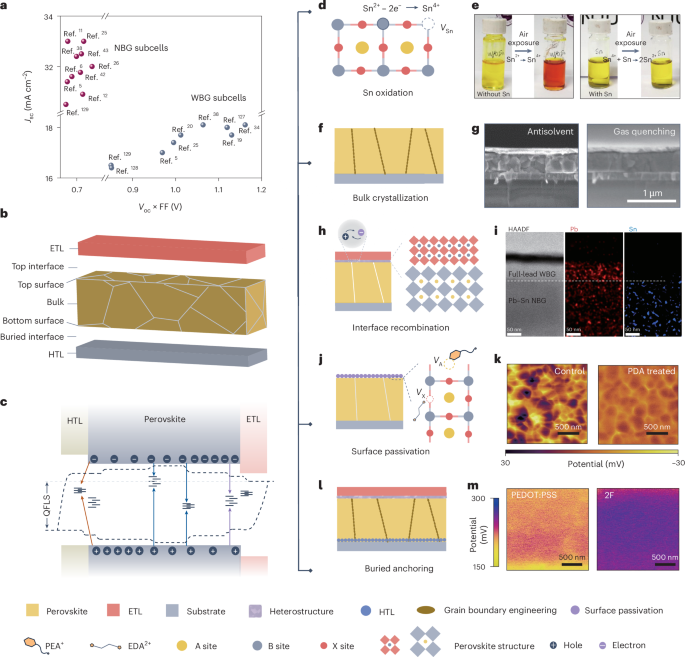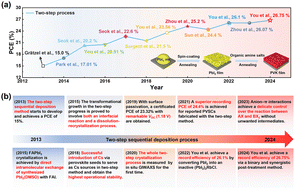New keyless car theft law 'won't stop the criminals'
More than 61,000 vehicles were reported stolen last year – and around 40% were taken without their keys Key hackers can now be jailed – but experts say issues go much deeper A new law intended to counter the UK’s rise in keyless car thefts won’t solve the problem, a leading figure in vehicle security has said. Last year, more than 61,343 vehicles were reported stolen, the third-highest figure in the past decade and double the 2015 total. And around 40% of those were stolen without their keys, by methods including relay attack, which tricks a car into believing the owner’s key is present. In 2023, Autocar reported that one website was selling devices – costing from £2500 to £30,000 – capable of taking control of cars including Range Rovers, Ferraris and Lamborghinis via their on-board ‘can bus’ system (which enables the micro-controllers and processors to communicate with each other). Previously, prosecution for handling these and other devices used to steal vehicles was only possible if it could be proved by the police that they had been used to commit a specific crime. Under the new law, anyone who is found in possession of such a device or found to have imported, made, adapted or distributed one could receive a maximum penalty of five years’ imprisonment and an unlimited fine. The owner of the device must prove that they were using it for a legitimate purpose to avoid being prosecuted. Diana Johnson, minister for policing, crime and fire prevention, said: “These new laws will prevent these devices from getting into the hands of thieves and organised crime groups. “We will also continue to work closely with the National Police Chiefs’ Council, which brings together the police and manufacturers to clamp down on vehicle crime.” But Clive Wain, head of police liaison at Tracker, a company that locates stolen cars with the help of the police, doesn’t believe the new law will stop the criminals. “In terms of countering electronic compromise, it’s a step in the right direction, but it won’t resolve the issue of keyless thefts,” he said. “The support we get from the police in tracing stolen cars is magnificent and is why we have a 95% recovery rate. However, I believe there are elements in the judicial system who believe car theft is a victimless crime and that insurers will settle. They may think this way when sentencing. “Bringing a car crime offender to justice and knowing full well that at court the sentence won’t reflect the time and effort [used on] bringing them to justice is challenging for the police when their resources are stretched.” Wain added that while finding the ‘chop shops’ where stolen cars are broken for parts can look like a victory, their discovery is just the tip of an iceberg. He said: “Chop shops are appearing up and down the country. However, very often the people arrested at the scene are not the orchestrators of the theft or operation. Instead, those people are often overseas. The people in the chop shop are just being paid to steal cars and break them up. So even if they’re pursued through the courts, you’re missing the top end of the organised crime group. “Investigating those people uses resources that could be used elsewhere on the thin blue line. It’s very difficult.” Neil Thomas, director of investigative services at Inn Track, another vehicle tracking company, believes a lack of co-operation between police forces could also undermine the new law. “Cross-border investigations are very challenging, and if a car goes to another police area, recovery can be very inconsistent,” said the former detective superintendent. “Recently, we were told that a Mercedes CLA had been stolen without the keys being present from a car park at Stansted airport in Essex. We tracked the car to a street where it had been parked up to ‘cool off’ while the thieves waited to see if it had been tracked. It had been stolen from the Essex Police area but found in the Metropolitan Police area. The Met told us to liaise with Essex, who said they had to ask the owner if they wanted their car forensically examined. They didn’t, and so it was returned to them. The point is that, during this time, valuable opportunities to examine the car were lost and we don’t know how it was stolen.” A spokesman for the Met couldn’t comment on this case but said it has longstanding arrangements with neighbouring forces, notably Regional Organised Crime Units that work with the National Crime Agency, forces and other partners.
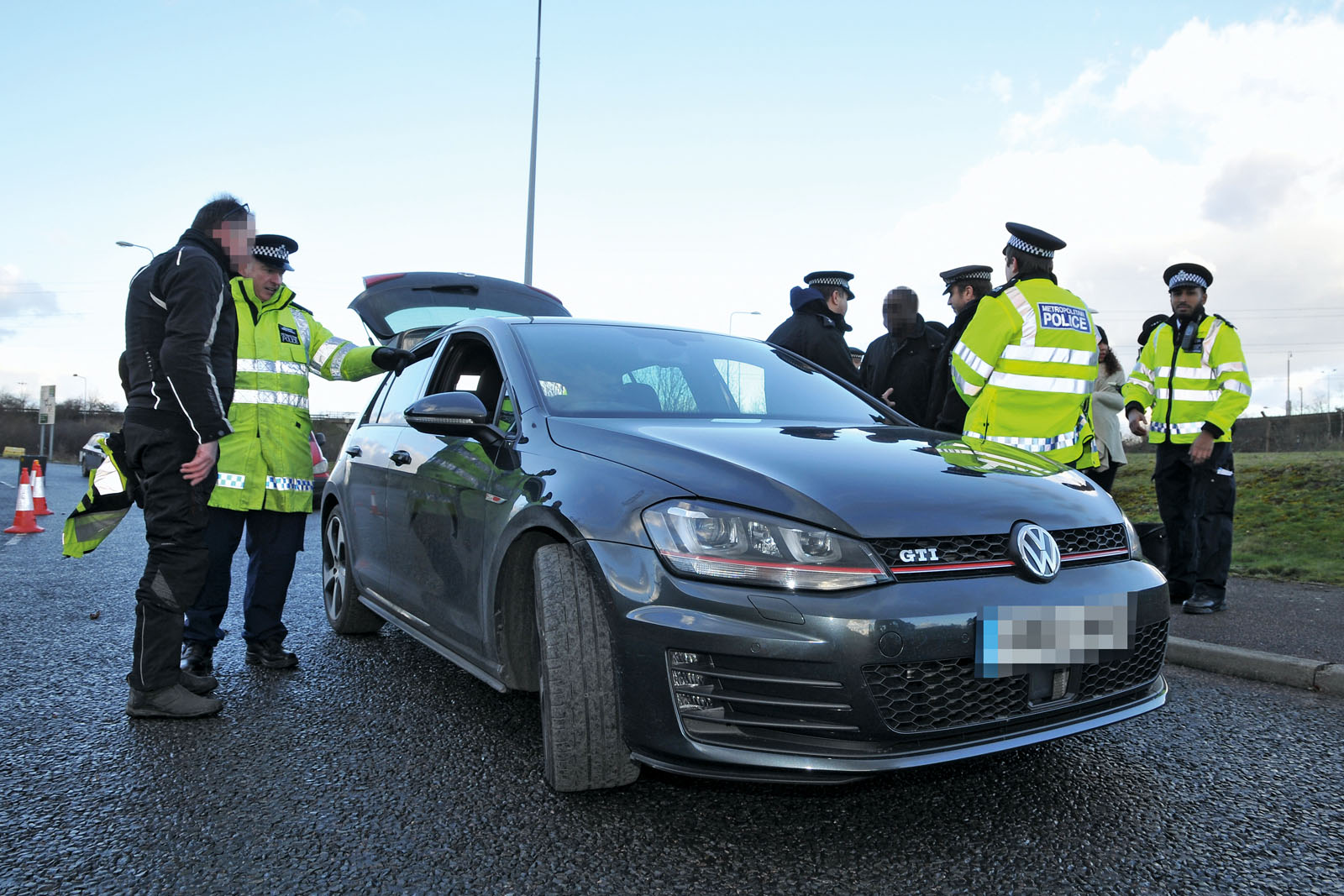

More than 61,000 vehicles were reported stolen last year – and around 40% were taken without their keysKey hackers can now be jailed – but experts say issues go much deeper
A new law intended to counter the UK’s rise in keyless car thefts won’t solve the problem, a leading figure in vehicle security has said.
Last year, more than 61,343 vehicles were reported stolen, the third-highest figure in the past decade and double the 2015 total. And around 40% of those were stolen without their keys, by methods including relay attack, which tricks a car into believing the owner’s key is present.
In 2023, Autocar reported that one website was selling devices – costing from £2500 to £30,000 – capable of taking control of cars including Range Rovers, Ferraris and Lamborghinis via their on-board ‘can bus’ system (which enables the micro-controllers and processors to communicate with each other).
Previously, prosecution for handling these and other devices used to steal vehicles was only possible if it could be proved by the police that they had been used to commit a specific crime. Under the new law, anyone who is found in possession of such a device or found to have imported, made, adapted or distributed one could receive a maximum penalty of five years’ imprisonment and an unlimited fine. The owner of the device must prove that they were using it for a legitimate purpose to avoid being prosecuted.
Diana Johnson, minister for policing, crime and fire prevention, said: “These new laws will prevent these devices from getting into the hands of thieves and organised crime groups.
“We will also continue to work closely with the National Police Chiefs’ Council, which brings together the police and manufacturers to clamp down on vehicle crime.”
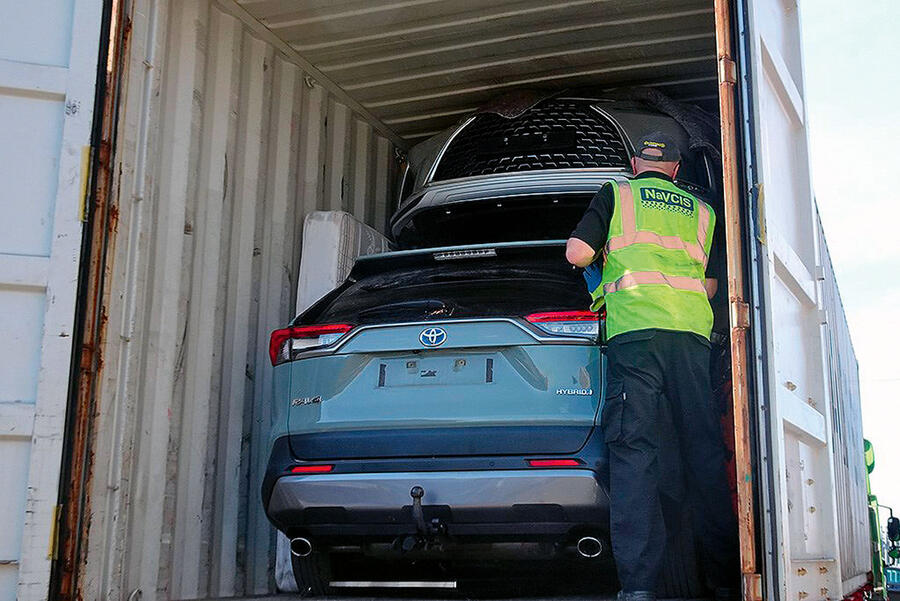
But Clive Wain, head of police liaison at Tracker, a company that locates stolen cars with the help of the police, doesn’t believe the new law will stop the criminals.
“In terms of countering electronic compromise, it’s a step in the right direction, but it won’t resolve the issue of keyless thefts,” he said. “The support we get from the police in tracing stolen cars is magnificent and is why we have a 95% recovery rate. However, I believe there are elements in the judicial system who believe car theft is a victimless crime and that insurers will settle. They may think this way when sentencing.
“Bringing a car crime offender to justice and knowing full well that at court the sentence won’t reflect the time and effort [used on] bringing them to justice is challenging for the police when their resources are stretched.”
Wain added that while finding the ‘chop shops’ where stolen cars are broken for parts can look like a victory, their discovery is just the tip of an iceberg.
He said: “Chop shops are appearing up and down the country. However, very often the people arrested at the scene are not the orchestrators of the theft or operation. Instead, those people are often overseas. The people in the chop shop are just being paid to steal cars and break them up. So even if they’re pursued through the courts, you’re missing the top end of the organised crime group.
“Investigating those people uses resources that could be used elsewhere on the thin blue line. It’s very difficult.”
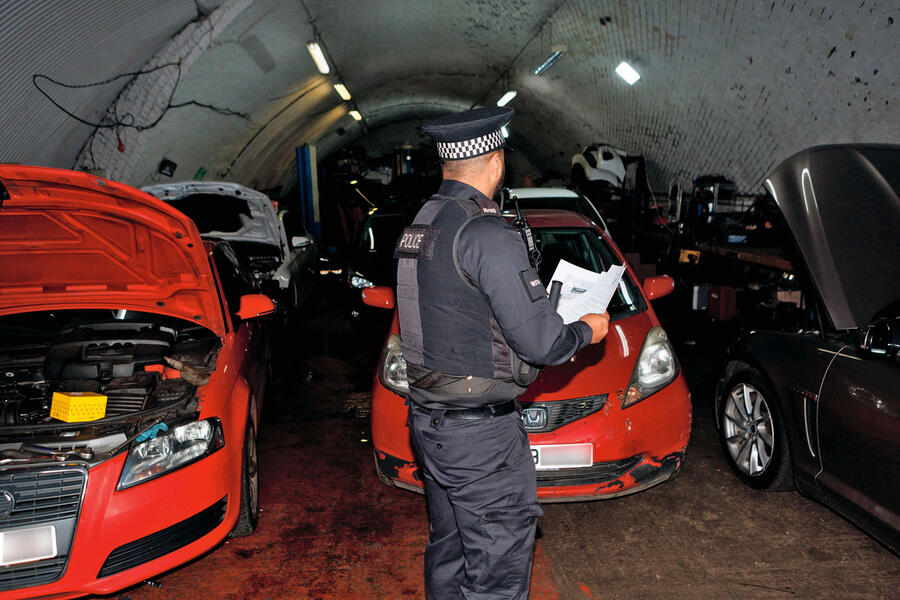
Neil Thomas, director of investigative services at Inn Track, another vehicle tracking company, believes a lack of co-operation between police forces could also undermine the new law.
“Cross-border investigations are very challenging, and if a car goes to another police area, recovery can be very inconsistent,” said the former detective superintendent.
“Recently, we were told that a Mercedes CLA had been stolen without the keys being present from a car park at Stansted airport in Essex. We tracked the car to a street where it had been parked up to ‘cool off’ while the thieves waited to see if it had been tracked. It had been stolen from the Essex Police area but found in the Metropolitan Police area. The Met told us to liaise with Essex, who said they had to ask the owner if they wanted their car forensically examined. They didn’t, and so it was returned to them. The point is that, during this time, valuable opportunities to examine the car were lost and we don’t know how it was stolen.”
A spokesman for the Met couldn’t comment on this case but said it has longstanding arrangements with neighbouring forces, notably Regional Organised Crime Units that work with the National Crime Agency, forces and other partners.
























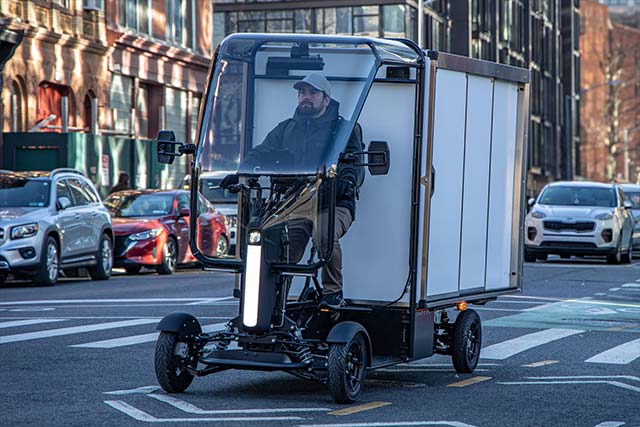





































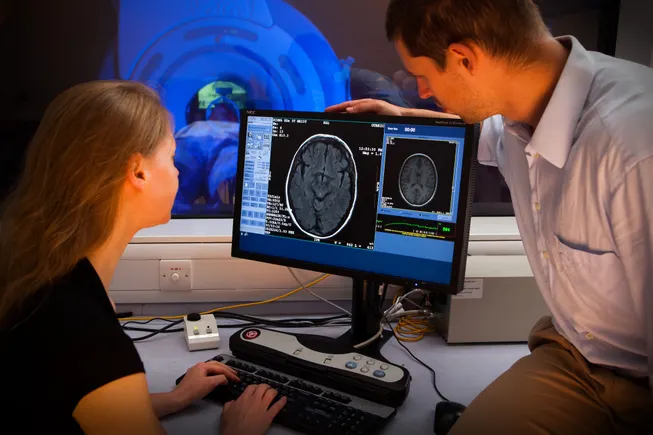

























![The American contingent and Turkey’s autonomy goals: Paris Air Show Day 3 [Video]](https://breakingdefense.com/wp-content/uploads/sites/3/2025/06/Wednesday-Wrap.00_00_32_21.Still001.png?#)
![A look at the jets flying high above the Paris Air Show [PHOTOS]](https://breakingdefense.com/wp-content/uploads/sites/3/2025/06/Rafale_02-scaled-e1750268097167.jpg?#)






































